NSW Police answer your COVID-19 frequently asked questions
Social restrictions begin easing on Friday but for many, confusion remains. What can and can’t you do? Police answer your questions. PLUS find out who is most at risk of COVID-19 in NSW.
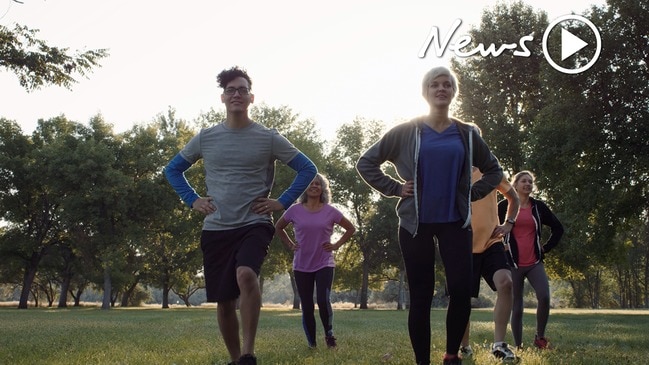
NSW Coronavirus News
Don't miss out on the headlines from NSW Coronavirus News. Followed categories will be added to My News.
As the severity of the COVID-19 outbreak eases in NSW, some social restrictions will change from Friday May 1 while others remain in place.
A maximum of two adults from Friday can visit another household with their dependent children, while students will resume limited face-to-face schooling from May 11.
But in terms of public gatherings, exercising, driving, even recreational activities, confusion continues around what people can and can’t do.
To help navigate the weeks to come, we looked at the most frequent questions being asked of NSW Police to help you navigate the changes.
SCROLL DOWN TO FIND OUT WHO IS MOST AT RISK IN NSW
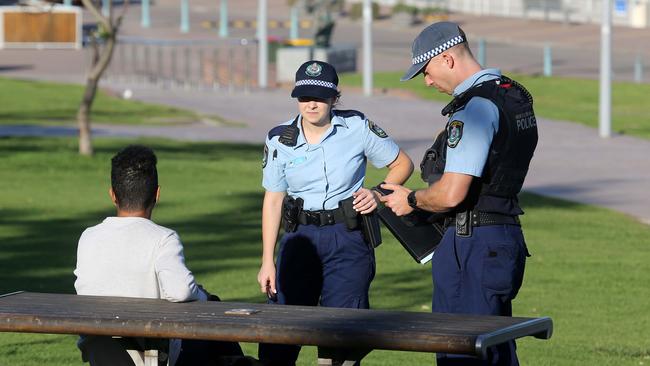
Q: Can I go to the beach?
A: Check with your council if your local beach is open. If it’s closed, don’t go.
If you are there for essential exercise, abide by social distancing rules.
People can swim or surf at Bondi and Bronte – and surf only at Tamarama – between 7am and 5pm on weekdays, with access to the water via designated entry and exit points.
Randwick City Council’s beaches reopened on Tuesday without time restrictions.
Beaches in Dee Why, Freshwater and Manly, under the Northern Beaches Council remain closed.
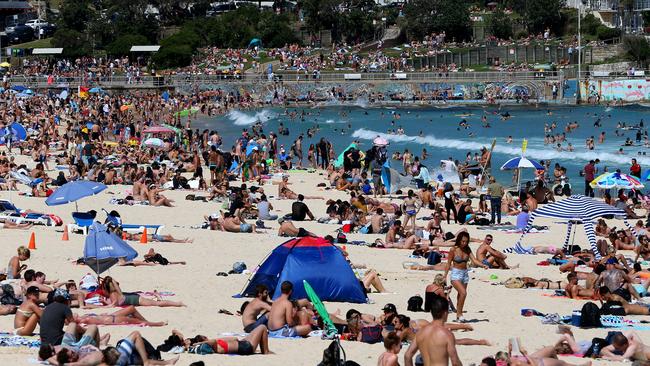
Q: Can I go boating/fishing?
A: If you go out, social distancing rules always apply – at the boat ramp and on your boat.
You should only be on your boat alone, or with no more than one other person; or with family who ordinarily live in the same household as you.
A ‘reasonable excuse’ to use your boat include:
● exercise such as kayaking/sailing/paddling etc
● fishing
● get to and from work, where work cannot be performed from home
● get groceries, provide assistance, care or support to family member
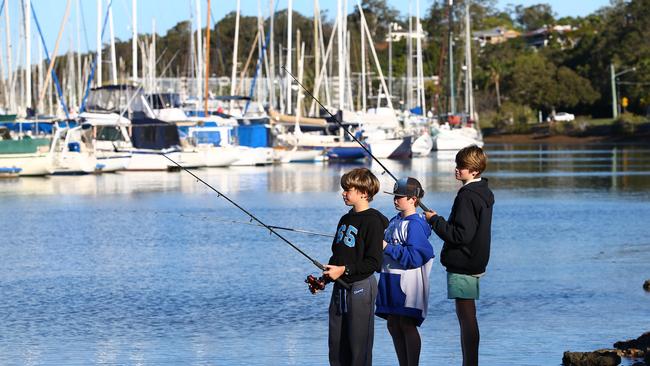
Q: Can I drive to my local park/beach/trail for exercise?
A: Driving to your chosen exercise location is fine; however, you should stay close to home. Please continue to follow NSW Health advice in relation to public gatherings and social distancing. Perform your exercise/activity and return home promptly.
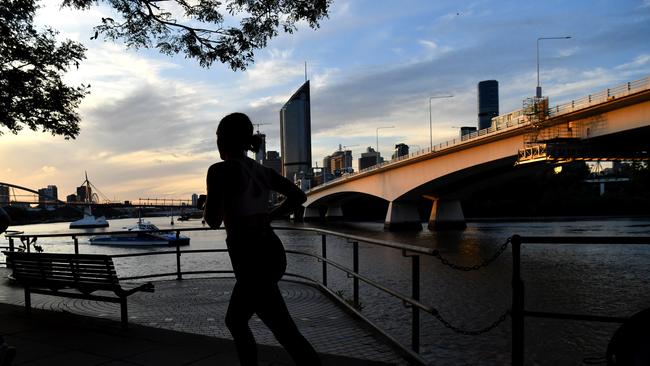
Q: Can I visit my family/friends?
A: From Friday, a maximum of two adults, plus any dependent children, will be permitted to visit another household for social or care reasons.
The government has not limited the nature of home visits because social interaction is good for mental health, especially for the elderly and vulnerable groups in the community.
Meeting in an outdoor environment such as home garden, backyard or veranda will help reduce the risk of potential infection transmissions.
The two-person limit still applies to public places and those over 70 should continue to stay at home whenever possible.

Q: Can I visit the cemetery?
A: Police ask people to keep visits to a minimum and keep in mind that seniors are at an increased risk of contracting the virus.
The following rules under the Public Health Act still apply:
● Restrictions surrounding gatherings of two or more, if the exceptions are not met.
● Restrictions surrounding the ‘One person per four square metre rule’
Private cemetery operators individually determine how to restrict visitors on their premises.
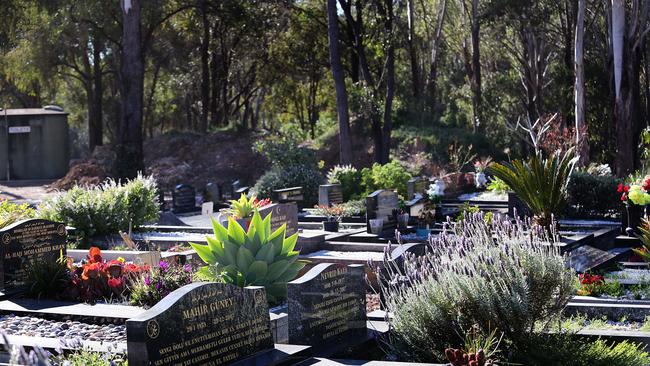
Q: Can I take a learner driver for a lesson?
A: A person can leave their house to receive driving lessons from an instructor or family member as this is a learning activity that cannot be done from home.
Learner drivers can drive with a supervising family member for any of the listed reasonable excuses for leaving the house – for example, driving to the supermarket
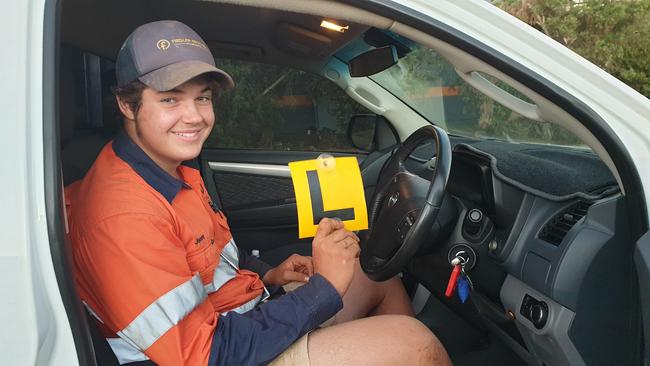
Q: Can I donate blood?
A: Yes, people can donate blood as it deemed essential.
Q: Can I travel within NSW?
A: Deputy Commissioner Gary Worboys stated in a press conference on Tuesday that there is no set travel limit in terms of kilometres.
As with all ministerial directions, police will use their discretion about what is deemed reasonable and have appealed for people to use “common sense”.
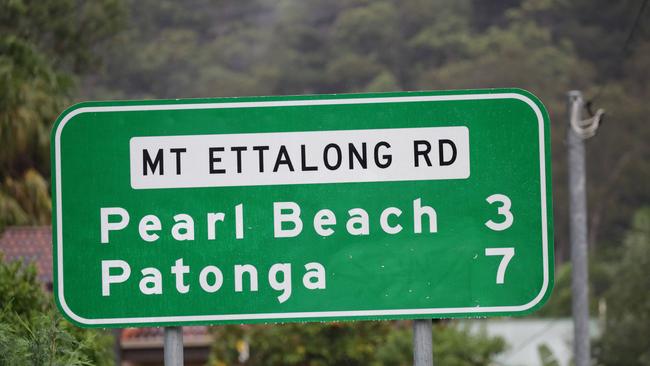
Q: Can I have a picnic in a park with friends?
A: No. In regards to sitting in parks, there are a number of reasonable excuses for being away from home. These include shopping, medical and exercise.
Currently, sitting in groups in a park is not allowed.
The two-person gathering limit still applies to public places.
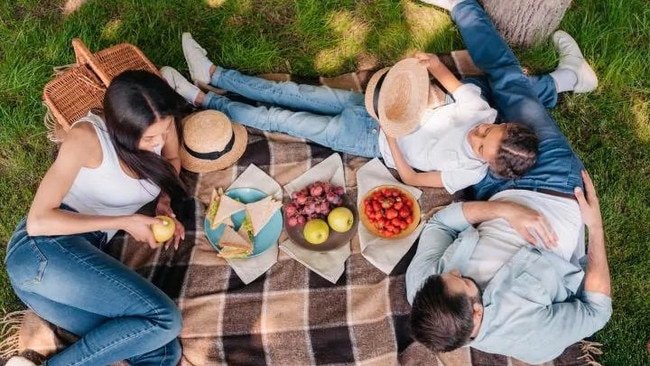
Q: Can people host parties?
A: In short, no. Although Premier Gladys Berejiklian will relax lockdown laws as of Friday May 1, allowing two adults and their dependent children to visit another household, parties are currently not allowed.
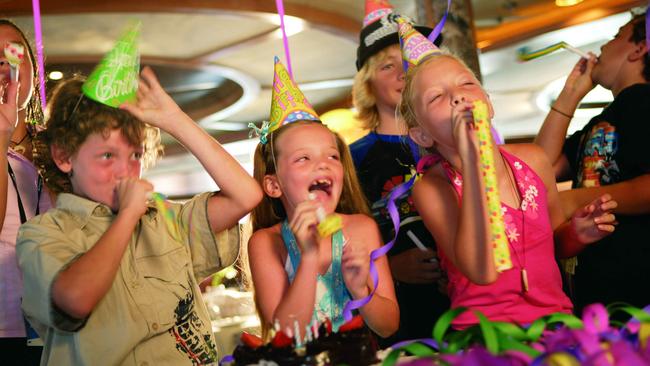
COVID-19 NSW: Who is at risk?
Most at risk of contracting COVID-19 are:
● people who have recently returned from overseas
● people who have been in close contact with someone infected.
There is also evidence of limited spread of COVID-19 in the community.
At greatest risk of serious infection are:
● people with compromised immune systems (e.g. cancer)
● people with diagnosed chronic medical conditions
● elderly people
● Aboriginal and Torres Strait Islander people, as they have higher rates of chronic illness
People in group residential settings including:
● residential aged care facilities
● disability group homes
● detention facilities
● boarding schools
● on Cruise Ships.
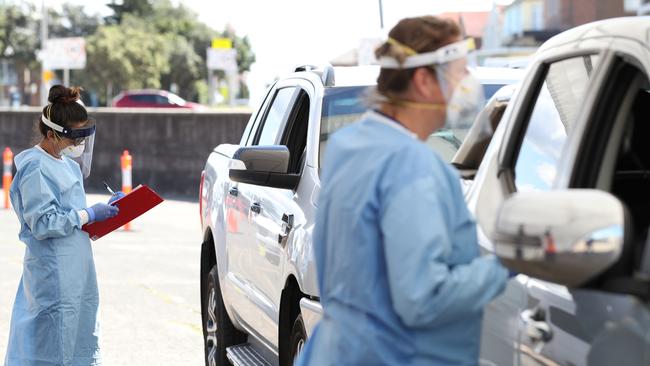
What about children?
Newborns and infants do not appear to be at increased risk of complications from the infection. Most children and teens with COVID-19 have mild or no symptoms and recover within one to two weeks.
Everyone in the family should have the seasonal flu vaccination when it becomes available.
Babies can have the seasonal influenza vaccine from 6 months of age.
Make sure your baby’s vaccinations are up to date to protect them from other diseases.
Discuss options with your health professional.
What if I come into contact with a person with COVID-19?
A close contact is has been face-to-face for at least 15 minutes, or in the same closed space for at least 2 hours, with a person that was infectious.
If you have been identified as a contact of a confirmed COVID-19 case, the local public health unit will contact you with advice.
You must isolate at home for 14 days and report any symptoms.
If you develop symptoms call ahead to talk to a doctor or call healthdirect on 1800 022 222.
What if I come into contact with a contact?
You do not need to self-isolate.
If the close contact develops symptoms and is confirmed as a COVID-19 case, public health authorities will determine who, if anyone, has been in close contact with them while they were infectious, and these people will be directed to self-isolate.
For more details, visit NSW Health ’s COVID-19 FAQ page.
